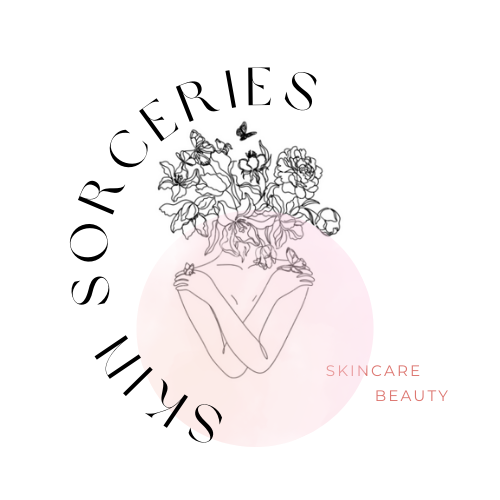In the quest for flawless skin, we often fall prey to various skincare myths that promise miraculous results but ultimately lead us down a path of confusion and disappointment. From the belief that pores can open and close to the idea that natural products are always superior, these misconceptions can have a profound impact on our skin health and the choices we make. Let’s delve into the world of skincare myths, uncovering the truth behind them, and empowering ourselves with knowledge to make informed decisions.
The Impact of Misinformation on Skin Health:
Misinformation surrounding skincare not only leads to wasted time and money but can also harm our skin. Following incorrect advice may exacerbate existing skin issues or even cause new ones to arise. Moreover, it can perpetuate unrealistic beauty standards and foster a sense of inadequacy when our skin doesn’t meet these unattainable ideals.
Expert Insights into Why These Myths Persist:
Despite advancements in skincare science, myths persist due to a combination of factors. Misinterpretation of scientific studies, anecdotal evidence, and the influence of marketing all play a role in perpetuating these falsehoods. Additionally, the lack of regulation in the skincare industry allows myths to thrive, as companies often prioritize profit over accurate information.
Myth 1: The Higher the SPF, the Better the Protection:
While it’s essential to protect our skin from harmful UV rays, the notion that higher SPF values equate to better protection is misleading. SPF measures the sunscreen’s ability to block UVB rays, not UVA rays, which also contribute to skin damage. Additionally, factors such as proper application and reapplication are more critical determinants of efficacy than SPF alone.
Myth 2: Pores Open and Close with Hot and Cold Water:
Contrary to popular belief, pores do not have muscles and cannot open or close like doors. While hot water may temporarily dilate pores and cold water can constrict them, these effects are short-lived and have minimal impact on pore size. Instead, focus on maintaining a consistent skincare routine to keep pores clear and minimize their appearance.
Myth 3: You Don’t Need Sunscreen on a Cloudy Day:
UV rays can penetrate clouds and cause skin damage even on overcast days. Therefore, sunscreen should be applied daily, regardless of the weather. Cloud cover may reduce the intensity of UVB rays, but UVA rays, which contribute to premature aging and skin cancer, remain a threat.
Myth 4: Natural or Organic Products Are Always Better for Your Skin:
While natural and organic ingredients have their merits, they are not inherently superior to synthetic ones. Many effective skincare ingredients are lab-created and undergo rigorous testing for safety and efficacy. Additionally, natural does not always mean safe, as some plant-based ingredients can cause allergic reactions or skin sensitivities.
Myth 5: You Should Choose Skincare Products Based on Your Age:
Skin concerns vary widely among individuals, regardless of age. Rather than adhering to age-based skincare guidelines, focus on addressing specific skin issues such as dryness, acne, or aging concerns. Tailoring your skincare routine to your unique needs will yield better results than following generic age-related recommendations.
Myth 6: The Harder You Scrub, the Cleaner Your Skin:
Aggressive scrubbing can damage the skin’s protective barrier, leading to irritation, inflammation, and accelerated aging. Gentle exfoliation is key to removing dead skin cells and promoting cell turnover without causing harm. Opt for mild exfoliants and use gentle pressure to avoid over-scrubbing.
Myth 7: Acne Is Caused by Dirty Skin and Is a Teenage Problem:
Acne is a multifactorial skin condition influenced by genetics, hormones, and lifestyle factors, rather than cleanliness alone. While proper hygiene is essential for maintaining clear skin, over-cleansing or harsh products can strip the skin of its natural oils, exacerbating acne. Moreover, acne can persist into adulthood and affect individuals of all ages.
Myth 8: Expensive Skincare Products Are More Effective:
Price does not always correlate with efficacy when it comes to skincare products. While luxury brands may use high-quality ingredients and innovative formulations, there are many affordable options that deliver similar results. Focus on ingredients backed by scientific research rather than brand prestige or price tag.
Myth 9: You Can Shrink Your Pores with the Right Products:
Pore size is largely determined by genetics and cannot be permanently changed. While certain skincare ingredients such as retinoids and niacinamide can help minimize the appearance of pores by improving skin texture and elasticity, they cannot alter their size. Focus on keeping pores clear and maintaining healthy skin to reduce their visibility.
Myth 10: A Good Skincare Routine Doesn’t Need to Change:
Our skin’s needs evolve over time due to factors such as aging, seasonal changes, and lifestyle habits. Therefore, it’s essential to adapt our skincare routine accordingly. Regularly assess your skin’s condition and adjust your regimen as needed to address any concerns or changes.
Recommendations for a Fact-Based Skincare Routine:
To build a fact-based skincare routine, prioritize the following principles:
1. Sun protection: Use a broad-spectrum sunscreen with an SPF of 30 or higher daily.
2. Gentle cleansing: Cleanse your skin twice daily with a mild, non-stripping cleanser.
3. Hydration: Moisturize your skin to maintain its natural barrier and prevent moisture loss.
4. Targeted treatments: Incorporate products with active ingredients tailored to your skin concerns.
5. Consistency: Establish a consistent skincare routine and give products time to work before expecting results.
The Importance of Consulting with Dermatologists:
While general skincare advice can be helpful, consulting with a dermatologist is invaluable for addressing specific skin concerns and developing a personalized treatment plan. Dermatologists can provide expert guidance, perform skin assessments, and prescribe medications or procedures when necessary. Don’t hesitate to seek professional help if you’re unsure about the best approach for your skin.
In conclusion, debunking skincare myths is crucial for making informed decisions about our skincare routine and maintaining healthy, radiant skin. By relying on evidence-based information and seeking guidance from skincare experts, we can separate fact from fiction and embark on a skincare journey that prioritizes efficacy and safety. Remember, knowledge is power when it comes to achieving your skincare goals.


Hey a great post you have here!
I enjoyed reading this post since it debunked many skincare myths heard and spread by many. Sometimes they aren’t doing us any fair therefore need to be called out!
I found the requirement of sunscreen on even cloudy days a interesting fact, I definitely need to purchase one then. I also liked to learn how expense doesn’t always reflect the quality of the product since this is what I too used to think.
Thanks again and have a great day!